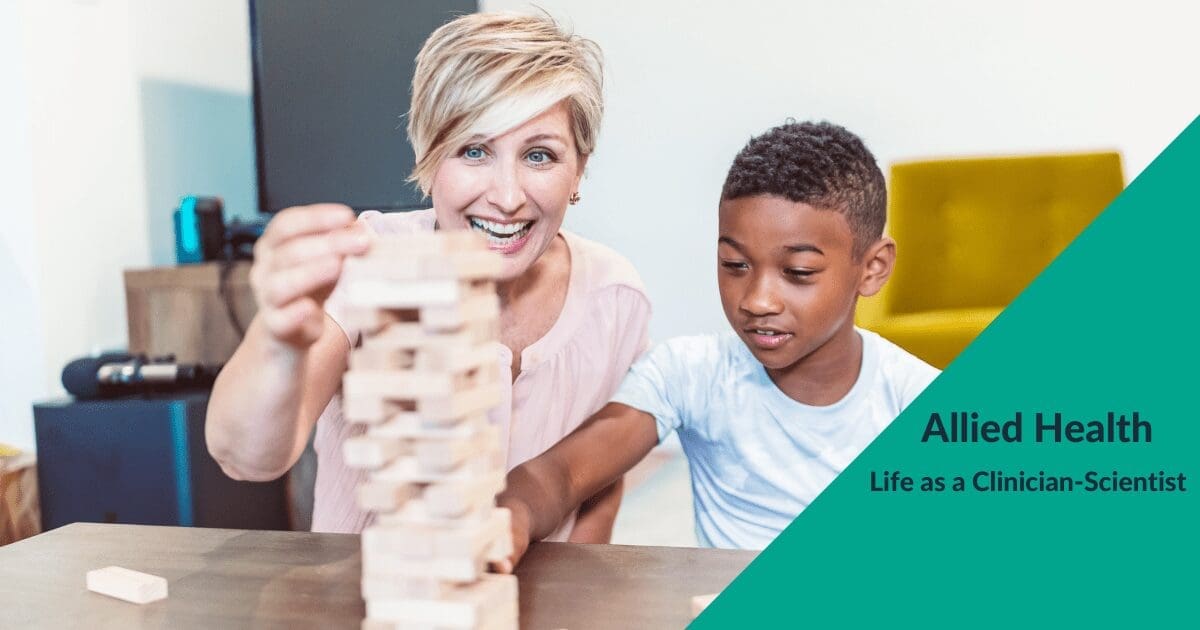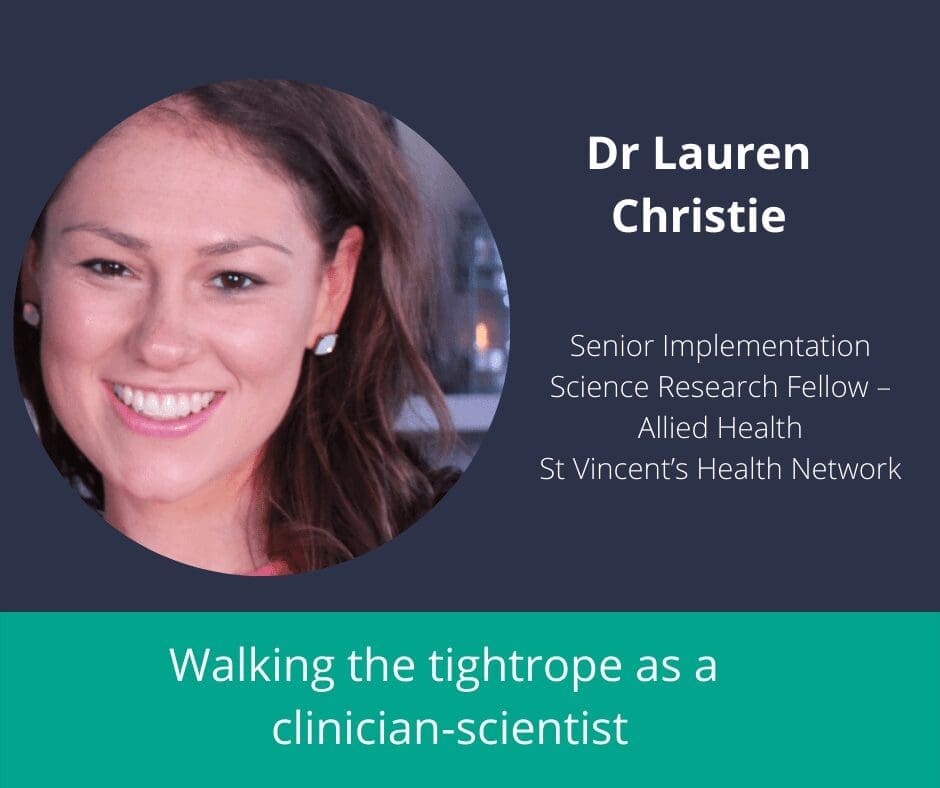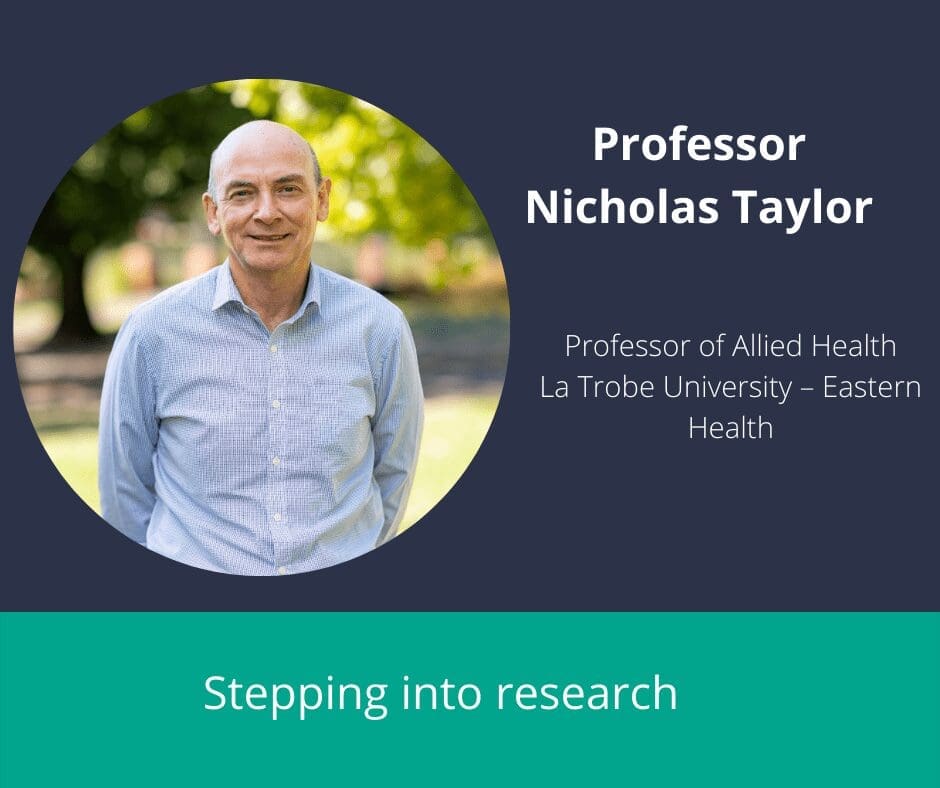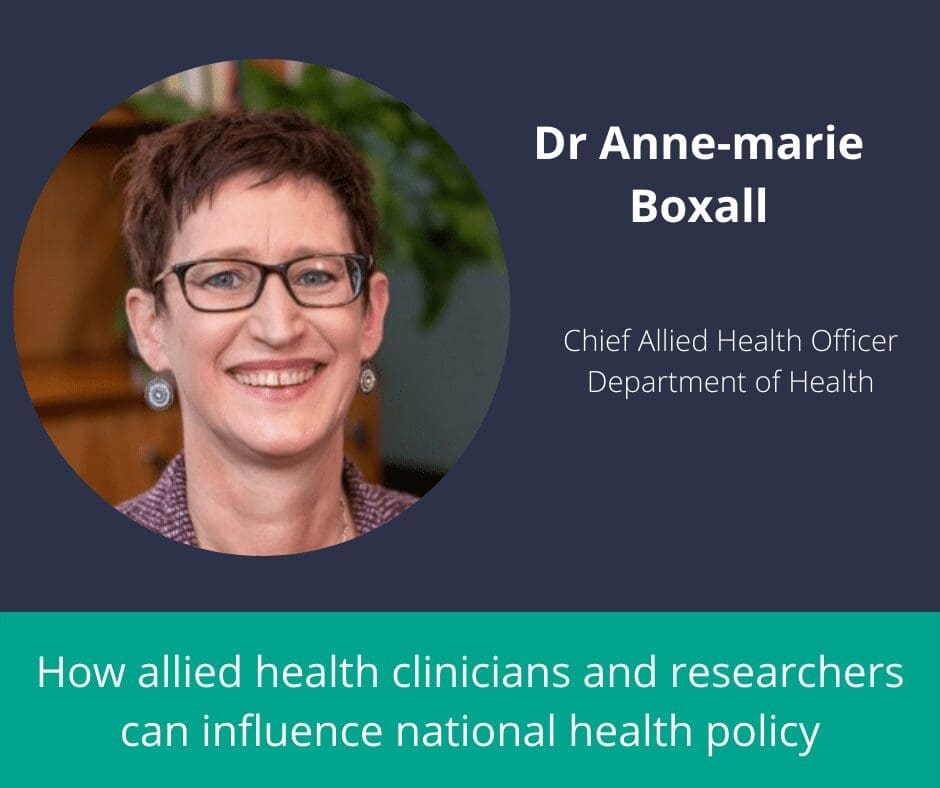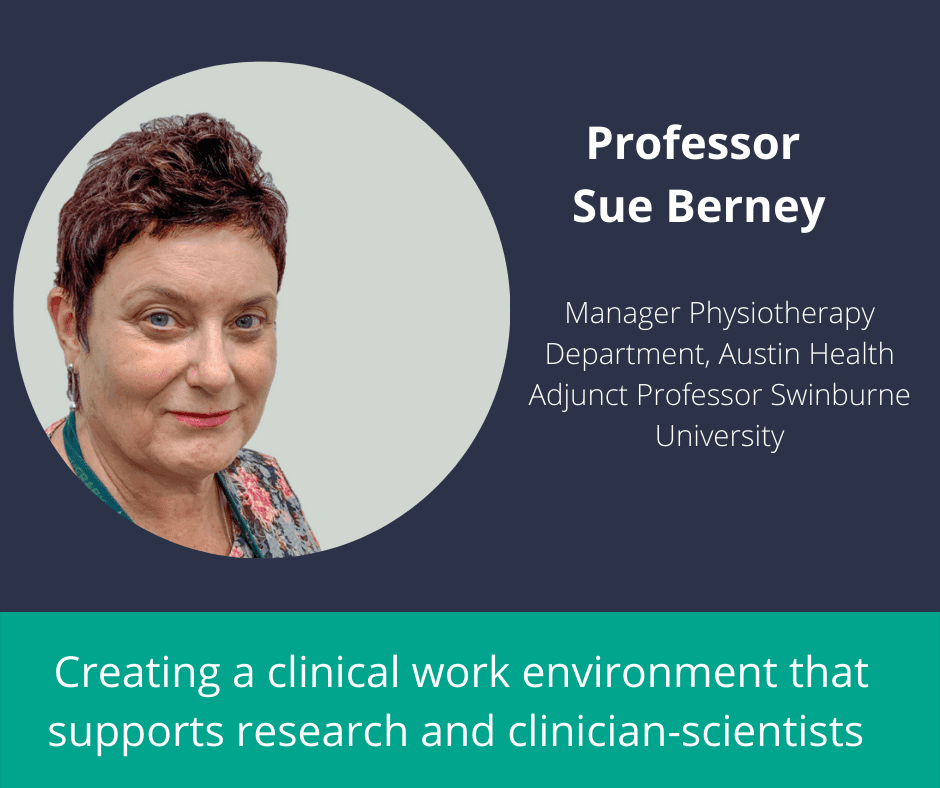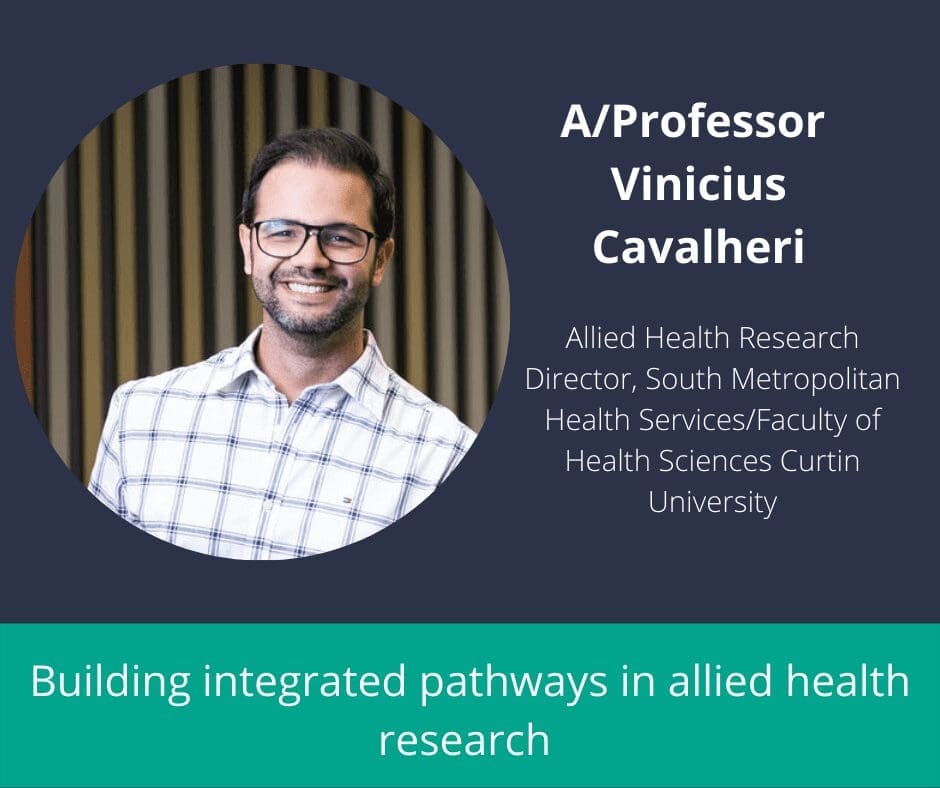Life as an allied health clinician is always busy, and for those clinicians interested in combining clinical work with research, it can be challenging to balance the two priorities.
Despite this juggling act, research is an excellent pathway to answer questions about what works and what needs further investigation, according to Professor Sue Berney, Manager Physiotherapy Department, Austin Health and Adjunct Professor, Swinburne University.
“It’s hard to be guided by evidence if evidence isn’t there,” Professor Berney said. “Research is a great pathway to answer some of those questions about what is valuable.”
Professor Berney was one of five senior allied health professionals to share their experiences and strategies for success as at our second ever Life as a Clinician-Scientist – Allied Health event. Attracting more than 400 registrants, this year’s event highlighted the strong interest in the allied health community to pursue research alongside clinical work.
This year the symposium returned in an online format with the theme of “Creating a research-supportive work environment.”
You can watch recordings of all presentations in our video library or read on for event highlights.
Dr Lauren Christie, an occupational therapist and Senior Implementation Science Research Fellow – Allied Health at St Vincent’s Health Network, Sydney, said creating a work culture that supports allied health clinician-scientists has a range of benefits that goes well beyond the desired research outputs, including upskilling of clinicians and improving patient outcomes by providing evidence-based interventions.
“I now feel that I am a much better clinician than I was before I started my research degree,” Dr Christie said.
“I’m able to appraise evidence, I’m better at selecting the right intervention for the right person at the right time, and I’m better able to provide education to patients about what their options are in terms of interventions and the likely benefits of those.”
For Professor Nicholas Taylor, Professor of Allied Health, La Trobe University – Eastern Health, spoke about the experiences that drove him to turn towards a career in research, alongside his work as a physiotherapist.
Professor Taylor’s research focuses on improving rehabilitation outcomes by evaluating exercise and physical activity interventions and investigating the best way to deliver health services in rehabilitation.
For his first foray into research in the 1980s, Professor Taylor wanted to find out if there was any evidence that percussion was a worthwhile technique to help clear airways in people with pulmonary conditions. “I realised I had to either leave the profession or ask some questions about what works and what doesn’t work,” he said.
He said asking questions early in his career highlighted the power of research, and the importance of creating a clear research question.
“You need to be passionate about asking a question and finding out the answer,” Professor Taylor said. “It always comes back to the question in research.”
Professor Taylor also highlighted the importance of collaboration, as well as having a clear vision about what you want to achieve from your research. “Don’t get spooked by naysayers. Really stick to your guns.” he said. “And don’t get spooked from your internal voice too.”
As an allied health clinician-scientist, you may do more than improve patient outcomes and upskill the workforce —you also have the potential to influence national health policy. Dr Anne-maree Boxhall, Chief Allied Health Officer, Department of Health, joined the panel to discuss how allied health clinicians and research can engage with government to make an impact on Australia’s health policy.
“I want to encourage people to think about how their research and their clinical practice can have an influence at the national level,” she said. “You can have a huge impact.”
Of course, it can be challenging to influence national health policy. Dr Boxall highlighted the importance of following national health policy debates and the agenda. When pitching your research to policy makers, such as politicians and government officials, “timing is everything and the framing is everything.”
This includes pitching your work in light of what the government is already doing, or how it is relevant, and providing submissions to relevant senate committees and enquiries. You could also “get a foot in the door” by working through organisations that are already engaged with government ministers, such as allied health peak bodies, Dr Boxall suggested.
Celebrating and recognising success is one of several ways that Professor Sue Berney and her team at Austin Health have worked to create a clinical work environment that supports research and clinician-scientists.
Professor Berney said it was essential to expose staff to research to identify potential opportunities to apply research frameworks.
“Set an expectation that research is part of what we do every day,” she said. This included having research embedded in “every agenda, in every performance review and framework.”
By making research one of three key pillars in her organisation, along with education and culture, Professor Berney said that care progressed from adequate to excellent.
As an allied health clinician, there are many barriers to completing a research degree, according to Associate Professor Vinicius Cavalheri, Allied Health Research Director, South Metropolitan Health Services/Faculty of Health Sciences Curtin University.
“For people who overcome barriers to complete a research degree, they commonly either divert to a full-time academic role or go back to clinical practice,” he said. “But things are changing with integrated pathways to clinical research.”
Associate Professor Cavalheri believed in creating pathways for clinical research from the recruitment stage by asking about research skills and research engagement.
To overcome barriers to success, collaboration is important. “Demonstrate how you can add to the service with the research you’re interested in,” he said.
Find out more about our Life as a Clinician-Scientist events on our program page.

